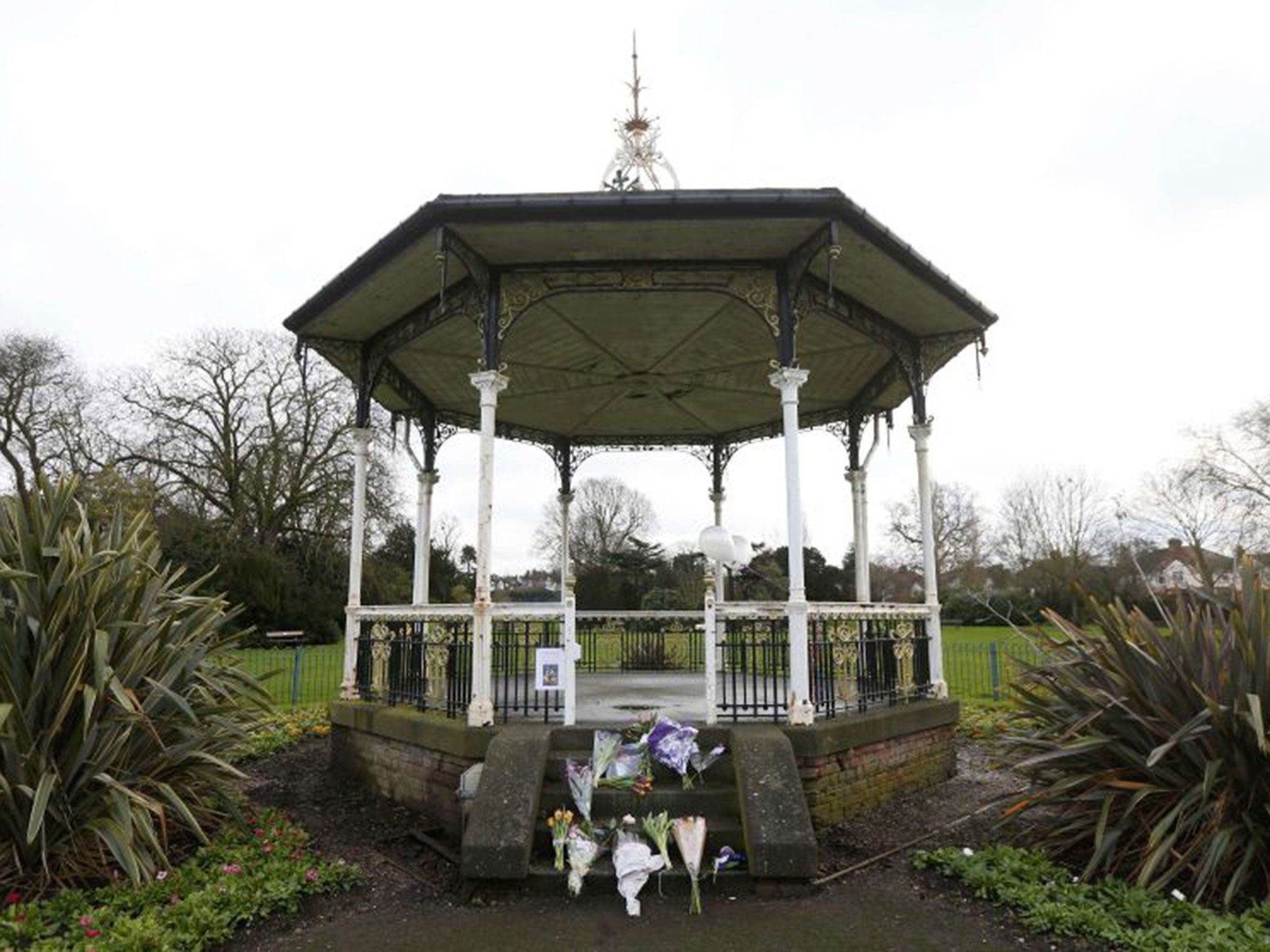David Bowie: How the singer retained affection for the suburb where his career started
'He had plenty of room for sentiment – he didn’t forget where he came from'

As a teenager in Russia, Natasha Ryzhova Lau listened to David Bowie records bought on the black market featuring a far-away bandstand on the cover. Today, she stood in front of the same bandstand in a south London suburb and quietly shed a tear for the man who became an inspiration.
On a summer’s day in 1969, a tousled Bowie clad in a flowing floral shirt sat under the Victorian rotunda in the Croydon Road Recreation Ground in Beckenham – normally the fiefdom of the local brass band – and played some of the songs that would soon propel him to stardom to an audience of a few hundred curious to hear the strains of Space Oddity.
When he and friends organised the iconic Beckenham Free Festival in 1969, Bowie was still an obscure and penniless musician hoping to raise funds to secure a permanent base for his experimental Arts Lab project set up in the backroom of the nearby Three Tuns pub.
Within three years, Ziggy Stardust had been born and blasted Bowie off to global fame. But the memory of the Free Festival, and the unlikely conjunction of Tudorbethan suburbia with one of Britain’s most influential avant garde talents, continues to linger potently in this leafy corner of south-east London.
Ms Ryzhova Lau, who left her native Moscow to live in London after meeting her British husband, was among the first of a steady stream of fans who arrived at the bandstand with flowers today, as news of Bowie’s death broke.
The 36-year-old children’s fashion designer, who was tying some tulips to the gate, said: “It’s a terribly sad day – for me he was a father figure, such an inspiration. When I grew up in Moscow, the only western music was still the Beatles and a few greatest hits albums. I got some Bowie records on the black market and it was so different, like someone turning on a light. I fell for it instantly.
“I had no idea that one day I would be living around the corner from the same bandstand that was on the cover of those records and in the picture I had on my bedroom wall. Something special happened in this place and I wanted to do something to help preserve it.”
For the past two years, Ms Ryzhova Lau and a volunteer group have organised a summer festival – appropriately entitled Memory of a Free Festival, after Bowie’s 1970 single – to raise money to help restore the handsome but careworn bandstand. The events have featured musicians who performed on the same bill as Bowie in August 1969.
What brought the singer to the comfortable but hitherto hardly edgy suburban redoubt of Beckenham was an offer from his landlady – and later lover – Mary Finnigan to move into her flat for a £5 rent she did not expect to receive.
Enjoy unlimited access to 70 million ad-free songs and podcasts with Amazon Music
Sign up now for a 30-day free trial
Enjoy unlimited access to 70 million ad-free songs and podcasts with Amazon Music
Sign up now for a 30-day free trial
David Bowie: Life in pictures
Show all 30The pair helped set up the Beckenham Arts Lab, part of a movement of independent arts centres, and the Free Festival, which took place as Bowie was grieving over the death of his own father.
Ms Finnigan, who last week published a biography describing her time with Bowie as a lodger, said the then 22-year-old had lived some of his most intensely creative months in the outer reaches of commuter land.
She said: “While he lived with me, he composed a lot of music. Me and my children were witnesses to an extraordinary process, it was one song written after another which appeared after his second album.”
Today the only physical reminder of the superstar’s presence is a plaque outside what was the Three Tuns pub, now a branch of the Zizzi’s restaurant chain, where two murals also hark back to the heady days of 1969, and the flowers were also piling up.
But for Bowie aficionados, the high street pizza joint and the bandstand around the corner remain places of unlikely pilgrimage. With efforts continuing to restore the bandstand and calls for a permanent memorial to Beckenham’s brush with a world-beating proponent of psychedelia, it might also be remembered that Bowie also never forgot the suburb.
When Ms Ryzhova Lau wrote to the singer’s agent asking if he would be interested in the Memory of a Free Festival event, the reply contained a collection of memorabilia to be auctioned.
She said: “He had plenty of room for sentiment. He didn’t forget where he came from.”
Subscribe to Independent Premium to bookmark this article
Want to bookmark your favourite articles and stories to read or reference later? Start your Independent Premium subscription today.

Join our commenting forum
Join thought-provoking conversations, follow other Independent readers and see their replies